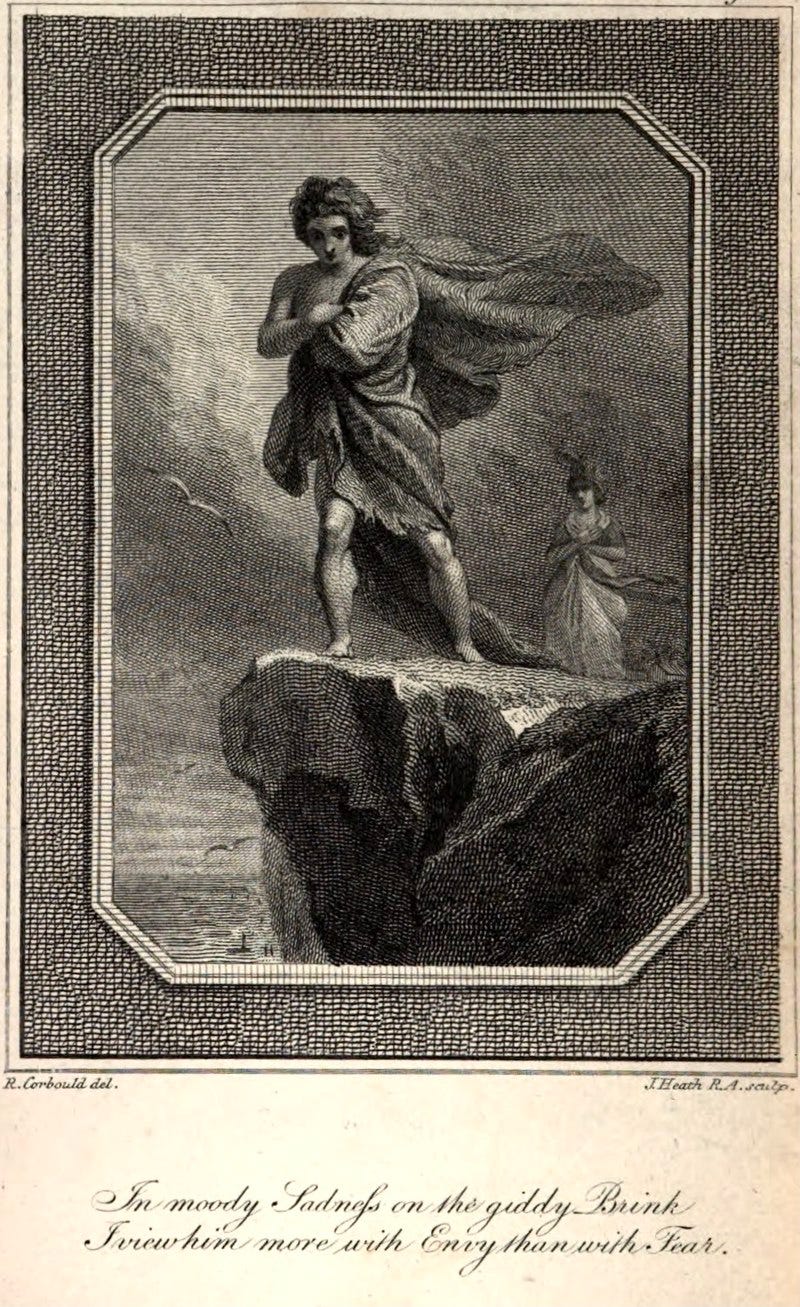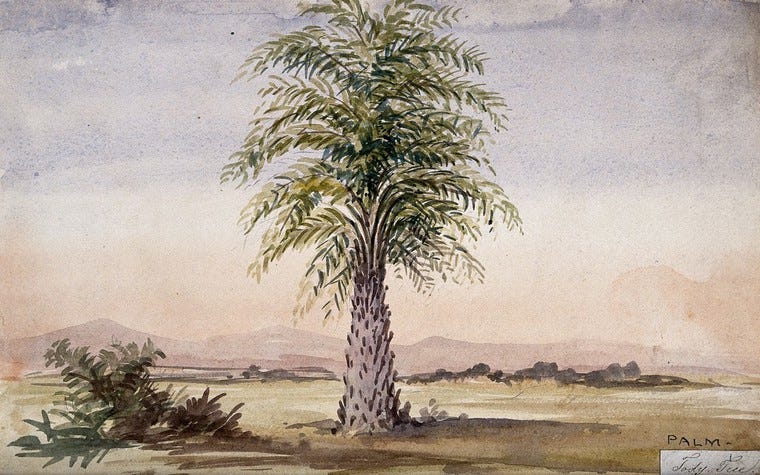Questioning others' words of caution
Charlotte Smith's compassionate sonnet from 1784 daringly questions the advice and prejudices of others about 'madness'
'On Being Cautioned Against Walking on a Headland Overlooking the Sea, Because it was Frequented by a Lunatic'
Is there a solitary wretch who hies To the tall cliff, with starting pace or slow, And, measuring, views with wild and hollow eyes Its distance from the waves that chide below; Who, as the sea-born gale with frequent sighs Chills his cold bed upon the mountain turf, With hoarse, half-uttered lamentation, lies Murmuring responses to the dashing surf? In moody sadness, on the giddy brink, I see him more with envy than with fear; He has no nice felicities that shrink From giant horrors; wildly wandering here, He seems (uncursed with reason) not to know The depth or the duration of his woe.

What we love about this poem…
We love the way she makes us picture the place and the character so vividly, and so urgently: not a moment is lost! The speaker immediately presents us with a key idea in the poem: her hesitation about the so-called ‘lunatic’ who has frequented this cliff urges us to look again.
Smith achieves this immediacy by having the sonnet start with ‘Is…’ and formulating the opening eight lines—sometimes called an octave in discussions of sonnets—as a question. She draws us in, asking us to reconsider the implied focal point of the poem: the solitary person who ‘hies,’ or hurries quickly, to the sea.
In the final lines—sometimes called a sestet—her own view on the matter comes to the fore. It’s perhaps startling to read ‘I see him more with envy than with fear’—a bold statement of empathy for someone stigmatized by his society as a ‘lunatic’, clearly suffering from a poorly understood mental disorder. The poem seems ahead of its time in this sympathetic view of the ‘solitary wretch’. The engraving we feature with the poem beautifully captures the way the speaker stands close by, looking at the ill-clad, desperate soul before her being buffeted by the stormy winds. It is high Romantic drama rendered in neat sonnet form.
About the author
Charlotte Smith (1749-1806) was foremost a poet, but also a novelist. Her collection Elegiac Sonnets (1784), from which this poem is taken, was responsible for popularizing the form in eighteenth-century Britain.
To read alongside...
Here are three other sonnets for you, by Elizabeth Barret Browning, John Milton, and Alice Moore Dunbar-Nelson, all featured in past newsletters. Enjoy!
O my palm tree!
from Elizabeth Barrett Browning, Sonnets from the PortugueseI think of thee!—my thoughts do twine and bud About thee, as wild vines, about a tree, Put out broad leaves, and soon there’s nought to see Except the straggling green which hides the wood. Yet, O my palm-tree, be it understood I will not have my thoughts instead of thee Who art dearer, better!…
Suggest a LitHit!
Tell us your own favourites from literature you've read, and we can feature you as a Guest Curator. Just email us with the following information:
Your full name
The title of the book you're suggesting
The location of the excerpt within the book (e.g., "in the middle of chapter 5"), or the excerpt itself copied into the email or attached to it (in Word)
Why you love it, in just a few sentences
About LitHits
Our curation is entirely human.
You might also enjoy...
Writers Make Worlds: https://writersmakeworlds.com/
The Ten Minute Book Club: https://www.english.ox.ac.uk/ten-minute-book-club
Project Gutenberg: https://www.gutenberg.org/
Standard Ebooks: https://standardebooks.org/
“Five Tips to Get Reading Again if You’ve Struggled During the Pandemic,” The Conversation (8 January 2021): https://theconversation.com/five-tips-to-get-reading-again-if-youve-struggled-during-the-pandemic-152904
Feedback
We'd love to hear your thoughts on our newsletter:
kshepherdb@yahoo.co.uk
Graphic design by Sara Azmy
All curation content © 2025 LitHits. All rights reserved.




